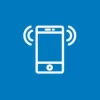The majority of messenger apps include classic features like group chats and voice messages. But the creators of messaging apps try to differentiate their services by including special functions or offering greater security and privacy. In this guide, moneyland.ch lists the main pros and cons of popular messaging apps to help you make the right choice.
Discord
Discord is not just a messenger. It is also a social media platform of sorts which targets the gamer community. Among other things, the app lets user stream games. The messenger service lets contacts share live streams of their gaming. This also works for mobile games.
The broad user base is an advantage. More than 150 million people use Discord every month. The more people use a messenger app, the higher the chance of your personal contacts using that messaging service is.
If gaming is not your thing, then other messaging apps will likely suit you better. Many new users find the app somewhat unintuitive. The fact that Discord does not use any end-to-end encryption means the service has very poor security ratings. Discord also clearly states that it harvests data for advertising purposes.
Facebook Messenger
Facebook’s messaging app offers many current features. The Facebook integration is practical if you already have an existing Facebook account.
The huge number of users is an advantage. Messenger lets you communicate with your Facebook and Instagram contacts.
But it is important to understand that Facebook harvests data which it then uses for advertising purposes. End-to-end encryption is not active by default. So many Facebook Messenger users communicate without optimal security. Theoretically, Facebook and/or third parties can access conversations.
iMessage
iMessage is a messaging app from Apple which is available to users of Apple devices (iPhones, iPads, Macs, and Apple Watches). Many users appreciate that iMessage is integrated directly into Apple's operating systems. So setting up iMessage is relatively easy. You do not even need to download the app. Synchronizing iMessage across multiple devices is also very uncomplicated.
iMessage uses end-to-end encryption, so that Apple itself cannot access your messages. Because iMessage messages can only be decrypted by Apple devices, it is not a secure messenger service for sending messages to Android devices. When you send a message to a non-Apple device, the message is sent as an SMS. This older texting service does not have end-to-end encryption, and also doesn't support as many types of content as modern messaging apps.
Signal
Signal is Brian Acton’s second messenger, created after he sold Whatsapp to Facebook and later left the company. His goal in creating the Signal app was to prioritize security and privacy. This seems to have worked well so far. The code is open-source and Signal’s encryption technology has now been adopted by a number of other service providers – including Whatsapp. The app has been endorsed by prominent individuals like Edward Snowden and Elon Musk.
The disadvantage of Signal is that it does not include some of the features which users of established competing apps will be used to. But Signal tends to catch up with new functions over time.
Another disadvantage is that Signal still has less users than competitors like Whatsapp and Telegram. This makes a complete migration to Signal difficult for many users.
Skype
Skype is well established in the online communications world. Its high user volume continues to give it an edge. Although Skype specializes in video and audio calls, the chat function is also well developed.
Unlike many popular messaging apps, you use an email address to log into skype. It is possible to use Skype without providing your phone number.
However, Skype’s owner Microsoft does not clearly state which data it harvests from Skype. Skype’s privacy policy is based on the policy applicable to all Microsoft products and simply states that data may be collected. Skype also does not use end-to-end- encryption by default. Users who want to protect their privacy have the option of initiating private conversations.
Telegram
In terms of features, few messenger apps can compete with Telegram. The app is part messenger, part social media platform. Telegram supports group chats with up to 200,000 users. It also supports desktop calls and lets you use multiple accounts at the same time. With over half-a-billion users, Telegram is currently one of the most widely used messaging services.
But there are concerns about the security of Telegram. The service uses its own proprietary encryption protocol, and there are some doubts about how reliable that protocol is. Additionally, end-to-end encryption is not active by default. If security is exceptionally important to you, Telegram may not be the best choice.
Governments have shared concerns that Telegram may be used by criminals to organize illicit or fraudulent activities, for example. A reason for this concern is that Telegram offers a certain level of anonymity compared to many other messaging apps because you can choose your own user ID and do not have to share your phone number or email with other users.
Threema
Swiss messaging app Threema is known for both its strong encryption and the fact that it channels very little data through its own servers. These attributes make the app exceptionally popular among people for whom privacy is an absolute priority.
The disadvantage over other messenger apps in this guide is that it is only offered as a paid version. The messenger costs 5 francs in the Apple and Google app stores. This barrier is likely a key reason why Threema only counts around 10 million users.
Threema is also somewhat more difficult to use than many other messenger apps. In order to continue using Threema after changing devices, you must create a backup and load this backup onto your new device. If you switch from an Android-powered device to an iPhone or vice versa, you have to buy the app all over again. With most other messenger apps, you can generally enter your phone number or email to log into the app on a new device.
Whatsapp
The huge user base is the biggest advantage of this Facebook-subsidiary. Around 2 billion users have signed up. This makes the chance of your finding personal contact on Whatsapp is high compared to competing messenger apps.
Whatsapp constantly expands its features. For example, the app gives you the option of sharing your location. You can also share stories (similar to Snapchat or Instagram stories) with your contacts. Critics point out that Whatsapp often appropriates functions from other messaging apps, and is usually catching up with more innovative apps where features are concerned.
Another point of criticism is that Facebook, which owns Whatsapp, targets user data and can harvest sensitive data like user IP addresses, and the model of phone you are using. If you prefer not to be under Facebook surveillance, you would do best to avoid Whatsapp completely.
Wire
Wire is a full open-source Swiss messaging app. This messenger app was developed by former Skype executives. Like Signal, it is focused on security. The fact that the encryption used by Wire is so similar to that used by Signal has been the cause of altercations between the two companies.
You do not need to enter a phone number to use Wire. An email address is sufficient (as with Skype).
Wire is a good option if you are looking for a Swiss alternative to Whatsapp. So far, Wire has primarily targeted business customers. The number of private individuals who use Wire is very limited. Because you are not likely to find all your personal contacts on Wire, in most cases it will not yet provide a complete alternative to other messaging apps.
More on this topic:
Compare Swiss mobile plans now
Useful tips for choosing the right mobile plan

 Deal of the Day
Deal of the Day 







